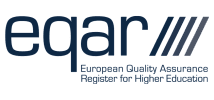
Corporate Corruption
This short course on Corporate Corruption Awareness and Prevention aims to provide participants with a comprehensive understanding of corporate corruption, its various forms, and its far-reaching effects on businesses and society. The course will explore key anti-corruption laws, ethical frameworks, and preventive strategies to recognize and mitigate corrupt practices in corporate settings. Through case studies, participants will learn how corruption affects corporate governance, operational efficiency, and public trust. The course also highlights the importance of fostering a transparent, ethical, and compliant work environment.
Overview

Overview
Course Learning Outcomes (CLOs):
By the end of the course, participants will be able to:
- Define corporate corruption and identify its various forms, including bribery, fraud, and embezzlement.
- Understand the legal and regulatory frameworks that govern anti-corruption practices in corporate environments.
- Analyze the impact of corruption on organizations, markets, and society at large.
- Apply ethical and compliance strategies to prevent and address corporate corruption.
- Promote transparency and accountability in business practices to foster a culture of integrity.
Student Learning Objectives (SLOs):
Upon completing the course, participants will be able to:
- Identify common corrupt practices in corporate environments and the red flags associated with them.
- Distinguish between ethical and unethical business behaviors and understand their consequences.
- Describe key anti-corruption laws such as the Foreign Corrupt Practices Act (FCPA) and the UK Bribery Act.
- Develop effective compliance programs and internal controls to prevent corruption.
- Conduct risk assessments and implement strategies for corruption detection and reporting.
- Understand the role of whistleblowing and corporate governance in mitigating corruption.

Benefits
With AI, the world is your oyster! It is an emerging field, rapidly growing, ever evolving and watched with a keen eye by industries and markets globally. There are many benefits to an education in AI:
In demand Career
With a Bachelor in artificial intelligence you are equipped with in-demand skills in the rapidly growing field of AI. Knowledge of developing AI systems, data analysis and AI techniques makes you valuable across industries, right from healthcare, finance, tech and more. This degree prepares you for career that has multiple options for diversification. AI professionals include AI engineers, data scientists, machine learning specialists, AI consultants, researchers and more. AI is transformative technology that is revolutionising the world. With an education background in AI, you are set up in an in-demand career field with an exciting future ahead!
Innovation and advancement
Applied AI is all about finding solutions and using AI systems to make life simpler. Applied AI draws on its solid foundation in Computer Science to analyse and provide solutions for real world challenges. You are prepared to address complex problems and contribute meaningfully in domains like healthcare diagnostics, fraud detection, autonomous vehicles, personalised recommendations and more. Being able to apply AI techniques for solving tasks makes for an extremely rewarding and impactful job role!
Solving real world problems
AI aims to constantly bridge the gap between natural intelligence and machine learning - it is a field of cutting edge research, innovation and advancing technology. This makes it ever evolving, with new algorithms, models and techniques being developed. By studying AI at an undergraduate level, you gain a strong foundation in AI fundamentals that help you better understand the latest advancements. You step into a career that empowers you to push the boundaries of AI, contribute to research and development and drive innovation in the field.
100% International
Study at your own pace from anywhere in the world
Recommended by 96% of our graduates
According to our latest alumni survey
50,000+ students
enrolled in Germany’s largest university
Study contents
Contents
Introduction to Corporate Corruption
- Definition and types (bribery, fraud, embezzlement, insider trading)
- Key examples of corporate corruption in various industries
Legal and Regulatory Frameworks
- Overview of anti-corruption laws (FCPA, UK Bribery Act, etc.)
- Role of international organizations in combating corruption (OECD, UN, etc.)
The Impact of Corporate Corruption
- Effects on companies, employees, and society
- Reputational damage, legal consequences, and financial loss
- Case studies on real-world corporate scandals
Ethical Decision Making
- Understanding business ethics and corporate responsibility
- Ethical dilemmas in corporate environments
- Promoting an ethical culture within an organization
Preventing Corporate Corruption
- Best practices for internal control and compliance programs
- Developing a corporate code of conduct
- Risk assessment and monitoring practices
Detecting and Responding to Corporate Corruption
- Identifying signs of corruption and conducting internal investigations
- Whistleblowing policies and protection
- Legal steps and actions to address corruption cases
Case Studies and Real-World Scenarios
- Analysis of famous corporate corruption cases
- Group discussions on identifying risks and proposing solutions
Corporate Governance and Transparency
- Role of boards, executives, and auditors in preventing corruption
- Implementing transparency and accountability measures in corporate governance.
Admission
Admissions
Admission Criteria:
To register for the Corporate Corruption Awareness and Prevention short course, participants should meet the following criteria:
- Age: Must be at least 18 years old.
- Education: A high school diploma or equivalent is preferred, though not mandatory.
- Professional/Personal Interest: Ideal for individuals working in or aspiring to work in corporate, legal, or compliance roles. Also suitable for business owners, managers, executives, and those involved in governance.
- Basic Communication Skills: Proficiency in English for understanding course materials and engaging in discussions.
Who Would Benefit from This Course?
- Corporate professionals, especially in management, finance, and operations, to better understand corporate compliance and ethical practices.
- Human Resources (HR) and Compliance Officers, tasked with implementing and monitoring anti-corruption policies and employee conduct.
- Executives and Board Members, responsible for upholding corporate governance standards and ensuring transparency.
- Entrepreneurs and Small Business Owners, looking to avoid legal pitfalls and establish ethical business foundations.
- Legal professionals, especially those focusing on corporate law, risk management, or anti-corruption policies.
- Auditors and Risk Managers, seeking to improve their skills in identifying and addressing corruption risks.
Careers
Careers
Career and Job Opportunities After Completing the Course:
This course provides critical insights that can be applied in various industries and roles, particularly those related to ethics, compliance, governance, and risk management. After completing the course, participants may pursue or enhance their careers in the following roles:
Compliance Officer
- Ensuring companies follow regulations and maintain ethical practices.
Internal Auditor
- Conducting internal audits to detect financial irregularities and corruption risks.
Risk Manager
- Assessing and mitigating corporate risks, including fraud and corruption.
Corporate Governance Officer
- Ensuring that the board and executive teams adhere to governance standards.
Legal or Regulatory Advisor
- Providing guidance on anti-corruption laws and advising on compliance.
Ethics and Corporate Responsibility Manager
- Promoting ethical standards and corporate social responsibility within organizations.
Forensic Accountant or Fraud Examiner
- Investigating financial discrepancies and corruption within businesses.
Business Development or Operations Manager
- Ensuring that business operations are transparent and compliant with anti-corruption practices.
Student reviews
Coming Soon.
Tuition fees
All our study programmes include the following benefits
- Teaching and study material
- Marking of your end-of-module exams
- Monthly live and recorded tutorials
- Use of the online campus
- Individual study coaching
- Online exams
- Career coaching
- Learn English for free
Our global recognition

IU is recognised by WES Canada and U.S., which means your degree can be converted to points in the local system for purposes of immigration, work, or studies.

As the first EU institution in UNESCO's Global Education Coalition, IU is committed to ensuring accessible quality education to students in crisis worldwide through free online micro-credentials.
Our company partners

For over 20 years, IU has established partnerships with leading global companies. This offers you the chance to gain firsthand experience through internships and projects and allow us to adapt our learning content to the ever-evolving needs of the labour market. You'll benefit from an education designed to bridge the gap between theory and real-world practice, ensuring your readiness for your future career.
Recognition
Recognition of previous achievements
Have you already completed a training course, studied at a university or gained work experience? Have you completed a course or a learning path through EPIBM LinkedIn Learning, and earned a certificate? Then you have the opportunity to get your previous achievements recognised, and complete your studies at EPIBM sooner.

Save time:
Skip individual modules or whole semesters!
Even before you apply for a study programme, we’ll gladly check whether we can take your previous achievements into account: 100% online, no strings attached. Simply fill in our recognition application form, which you can find under the content section of each study programme's webpage, and upload it via our upload section. You can also e-mail it to us, or send it via post.
Send an email to [email protected] to find out which previous achievements you can get recognised. You can get your previous achievements recognised during your studies.
Recognition files
Autonomous vehicles developer
With AI, the world is your oyster! It is an emerging field, rapidly growing, ever evolving and watched with a keen eye by industries and markets globally. There are many benefits to an education in AI:
That’s why after graduating, you’ll be able to apply your professional skills and knowledge, and work for development teams at any sector you find appealing.


Augmented reality (AR/VR) developer
Virtual (or augmented) reality isn’t all just fun and games, as great and enjoyable as that aspect is. It can also be used for groundbreaking social and psychological research, defensive purposes and therapy.
With an Applied Artificial Intelligence degree from IU University of Applied Sciences, you can take part in this vital field of technological development, and work on a wide variety of interesting projects.
Change what the world thinks about the possibilities that AI offers, and make a real difference in people’s lives, while enjoying every step of the process.
F.A.Q
Frequently Asked Questions
You might also be interested in these study programmes
Accredited and certified













